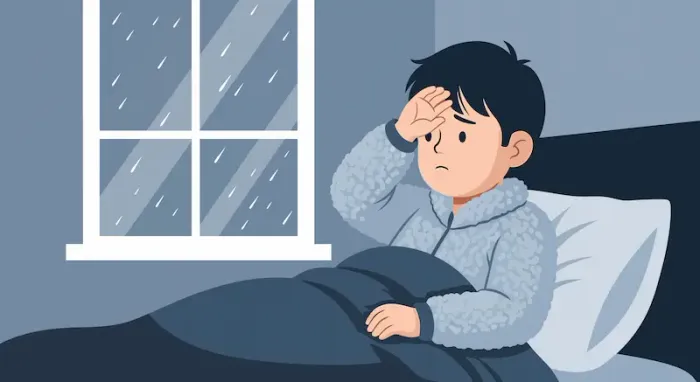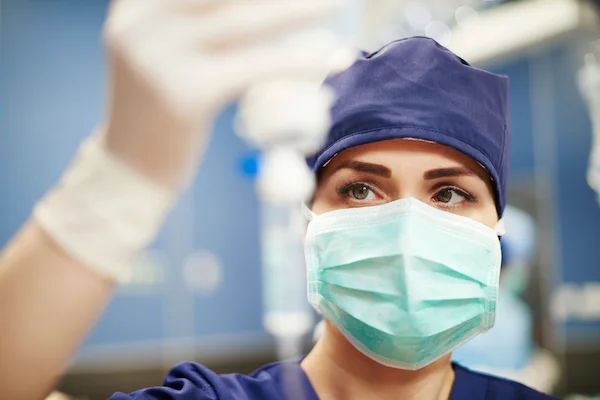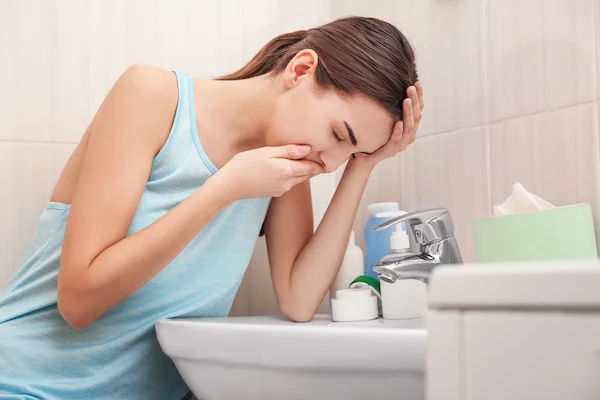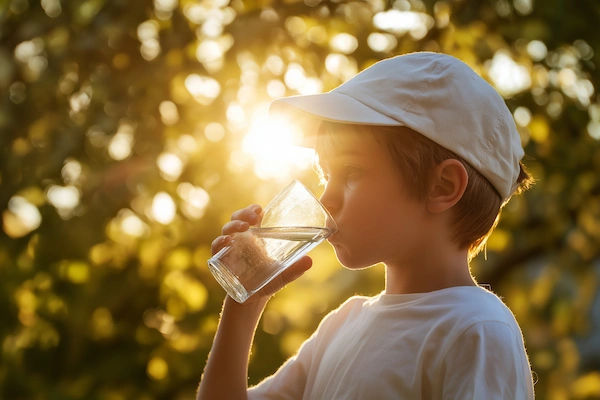Guide to Rainy Season Diseases And Prevention
Explore common rainy season diseases, their symptoms, and effective prevention tips to stay healthy and safe during the monsoon.


Introduction
The pitter-patter of rain brings relief from the scorching summer heat, but it also ushers in a season of heightened health vulnerabilities. The rainy season creates a perfect storm of conditions for various diseases to thrive, from mosquitoes breeding in stagnant water to pathogens contaminating our food and water sources. While the monsoon is a time to enjoy pakoras and chai, it's also a critical time to be vigilant about your health. This comprehensive guide will walk you through the most common rainy season illnesses, their tell-tale symptoms, and, most importantly, actionable prevention strategies. Our goal is to empower you with knowledge, so you can enjoy the rains without falling prey to the ailments that often accompany them. Let's dive into how you can build a robust defense against monsoon health challenges.
Why the Rainy Season Increases Health Risks
The monsoon's high humidity and constant dampness fundamentally alter our environment, creating ideal conditions for pathogens to multiply and spread.
Stagnant Water: The Perfect Breeding Ground
Every puddle, unused pot, clogged drain, or discarded tire becomes a potential nursery for mosquitoes. The Aedes aegypti mosquito, responsible for Dengue and Chikungunya, prefers to breed in clean, stagnant water often found in urban settings, while the Anopheles mosquito (Malaria) can breed in larger water bodies. This explosion in the mosquito population directly correlates with the spike in vector-borne diseases.
Humidity and Its Role in Fungal Infections
High moisture levels in the air mean our skin takes longer to dry. This constant dampness, especially in areas like feet, armpits, and groin, disrupts the skin's natural barrier, making it susceptible to fungal and bacterial infections like athlete's foot, ringworm, and boils.
Contaminated Water and Food Sources
Heavy rains can overwhelm sewage systems and cause flooding, leading to the mixing of clean water sources with contaminated sewage. This contamination is the primary cause of water-borne diseases like Typhoid, Cholera, and Hepatitis A. Similarly, the humidity can cause food to spoil faster, increasing the risk of food poisoning and gastroenteritis.
Consult a General Physician for the best advice
Common Rainy Season Diseases and Their Symptoms
Understanding the enemy is the first step to defense. Here’s a breakdown of common monsoon ailments.
Water-Borne Diseases
These illnesses spread through the consumption of contaminated water.
• Typhoid Fever: Caused by the Salmonella Typhi bacteria. Symptoms include sustained high fever, weakness, stomach pain, headache, and sometimes a rash. In severe cases, it can lead to intestinal perforation.
• Cholera: Caused by Vibrio cholerae, leading to severe, watery diarrhea and rapid dehydration. This is a medical emergency requiring immediate rehydration.
• Hepatitis A: A viral infection that inflames the liver. Symptoms include jaundice (yellowing of skin and eyes), dark urine, extreme fatigue, nausea, and abdominal pain.
Vector-Borne Diseases
Spread through the bites of infected insects, primarily mosquitoes.
• Dengue Fever: Characterised by a sudden high fever, severe headache (especially behind the eyes), intense muscle and joint pain (giving it the nickname "breakbone fever"), and a skin rash. A drop in platelet count is a key concern.
• Malaria: Caused by a parasite transmitted by the female Anopheles mosquito. Symptoms include high fever with chills and rigors, sweating, headache, and nausea, often occurring in cyclical patterns.
• Chikungunya: Similar to dengue, it causes high fever and debilitating joint pain that can persist for weeks or even months, though it is rarely fatal.
Air-Borne and Viral Infections
Sudden temperature changes and humidity weaken immunity, making us prone to viruses.
• Influenza and the Common Cold: Symptoms include sore throat, cough, runny nose, congestion, and body aches. The flu typically comes on more suddenly and is more severe than a common cold.
• Viral Fever: A blanket term for fevers caused by various viruses. Symptoms include fever, cold, cough, body ache, and fatigue.
Infections Caused by Humidity and Contamination
High humidity and exposure to contaminated water or food can increase the risk of several infections during the rainy season.
• Leptospirosis (Weil's Disease): A bacterial infection spread through contact with water or soil contaminated by the urine of infected animals (like rats). It's common in waterlogged areas. Symptoms include high fever, headache, muscle aches (particularly calf muscles), and red eyes.
• Fungal Skin Infections: Look out for itchy, red, circular patches on the skin (ringworm), peeling and itching between toes (athlete's foot), or discolored patches.
• Stomach Flu (Gastroenteritis): Inflammation of the stomach and intestines, leading to diarrhea, vomiting, stomach cramps, and fever, often caused by contaminated food or water.
Proactive Prevention: Your Shield Against Monsoon Illnesses
An ounce of prevention is worth a pound of cure, especially during the monsoon.
Mosquito Control Strategies
The most effective way to prevent vector-borne diseases is to avoid mosquito bites. Use mosquito repellents (creams, nets, patches), wear long-sleeved clothing, and install screens on doors and windows. Eliminate breeding grounds by regularly emptying, covering, or treating any container that holds water.
Ensuring Safe Drinking Water and Food Hygiene
Always drink boiled or purified water. Avoid raw foods like salads outside your home, as they may have been washed in contaminated water. Eat freshly cooked, warm meals. Wash fruits and vegetables thoroughly. Street food is a major culprit for stomach infections during the monsoon; consume it with extreme caution or avoid it altogether.
Personal Hygiene and Protective Clothing
Wash your hands frequently with soap and water, especially before eating. If you get drenched, change into dry clothes immediately. Keep your feet dry; use antifungal powder if prone to infections. When walking through flooded areas, wear waterproof boots or galoshes to prevent direct contact with contaminated water, a key step in preventing leptospirosis.
When to Seek Professional Medical Help
While home care works for minor colds, certain symptoms warrant immediate medical attention. If symptoms persist beyond two weeks, consult a doctor online with Apollo24|7 for further evaluation. Seek help immediately if you experience:
• High fever (above 102°F) that does not subside.
• Severe dehydration (dizziness, no urination for hours).
• Severe headache, vomiting, or abdominal pain.
• Signs of bleeding (e.g., red spots on skin, bleeding nose/gums).
• Difficulty breathing or chest pain.
• Confusion or disorientation.
For precise diagnosis of fevers like typhoid or dengue, lab tests are crucial. Apollo24|7 offers a convenient home collection for tests like CBC for platelet count or the Widal test for typhoid, ensuring you get accurate results without stepping out in the rain.
Get Your Health Assessed
Conclusion
The rainy season doesn't have to be synonymous with sickness. By understanding the common diseases that proliferate during this time and adopting a proactive approach to prevention, you can significantly reduce your health risks. It boils down to simple, consistent habits: managing mosquitoes, ensuring impeccable water and food hygiene, and maintaining personal cleanliness. Remember, your health is your wealth, and being cautious allows you to savour the beauty of the monsoon without any worries. Stay informed, stay prepared, and if in doubt, never hesitate to seek professional medical advice to ensure a safe and enjoyable season.
Consult a General Physician for the best advice
Consult a General Physician for the best advice

Dr. Chethan T L
General Physician/ Internal Medicine Specialist
5 Years • MBBS, MD, DNB (General Medicine)
Bengaluru
Apollo Medical Center, Marathahalli, Bengaluru

Dr. Rajib Ghose
General Physician/ Internal Medicine Specialist
25 Years • MBBS
East Midnapore
VIVEKANANDA SEBA SADAN, East Midnapore
Dr. Konda Sanjith
General Physician/ Internal Medicine Specialist
4 Years • MBBS,MD(General Medicine)
Manikonda Jagir
Apollo Clinic, Manikonda, Manikonda Jagir

Dr. Khuda Baksh Nagur
General Physician/ Internal Medicine Specialist
11 Years • MBBS, MD (GENERAL MEDICINE), Certificate Programme clinicians in Diabetes Management
Bengaluru
Medwin multispeciality clinic, Bengaluru
(25+ Patients)

Dr. Soumen Paul
General Physician/ Internal Medicine Specialist
24 Years • MBBS
Kolkata
MCR SUPER SPECIALITY POLY CLINIC & PATHOLOGY, Kolkata
(50+ Patients)
Consult a General Physician for the best advice

Dr. Chethan T L
General Physician/ Internal Medicine Specialist
5 Years • MBBS, MD, DNB (General Medicine)
Bengaluru
Apollo Medical Center, Marathahalli, Bengaluru

Dr. Rajib Ghose
General Physician/ Internal Medicine Specialist
25 Years • MBBS
East Midnapore
VIVEKANANDA SEBA SADAN, East Midnapore
Dr. Konda Sanjith
General Physician/ Internal Medicine Specialist
4 Years • MBBS,MD(General Medicine)
Manikonda Jagir
Apollo Clinic, Manikonda, Manikonda Jagir

Dr. Khuda Baksh Nagur
General Physician/ Internal Medicine Specialist
11 Years • MBBS, MD (GENERAL MEDICINE), Certificate Programme clinicians in Diabetes Management
Bengaluru
Medwin multispeciality clinic, Bengaluru
(25+ Patients)

Dr. Soumen Paul
General Physician/ Internal Medicine Specialist
24 Years • MBBS
Kolkata
MCR SUPER SPECIALITY POLY CLINIC & PATHOLOGY, Kolkata
(50+ Patients)
More articles from General Medical Consultation
Frequently Asked Questions
1. What is the most common disease during the rainy season?
While several are prevalent, viral fever and common cold are the most frequently occurring, followed closely by water-borne illnesses like gastroenteritis and vector-borne diseases like dengue in endemic areas.
2. How can I boost my immunity during the monsoon?
Focus on a diet rich in Vitamin C (amla, citrus fruits), antioxidants, and probiotics (yogurt). Stay hydrated with warm fluids like herbal teas and soups. Ensure adequate sleep and manage stress.
3. Are there any vaccinations for monsoon diseases?
Yes, vaccinations are available for Hepatitis A and Typhoid. It is advisable to consult with your doctor to see if these are recommended for you and your family, ideally before the monsoon begins.
4. Can I get sick from walking in rainwater?
Yes, especially if the water is stagnant or flooded, as it can be contaminated with sewage and animal urine, putting you at risk for leptospirosis and fungal infections. Always wash your feet and legs thoroughly with soap and water if you've waded through floods.
5. What are the first signs of dengue?
The first signs are often a sudden, high fever (104°F) accompanied by severe headache, pain behind the eyes, and severe muscle and joint pain. A skin rash may appear a few days after the fever starts.





